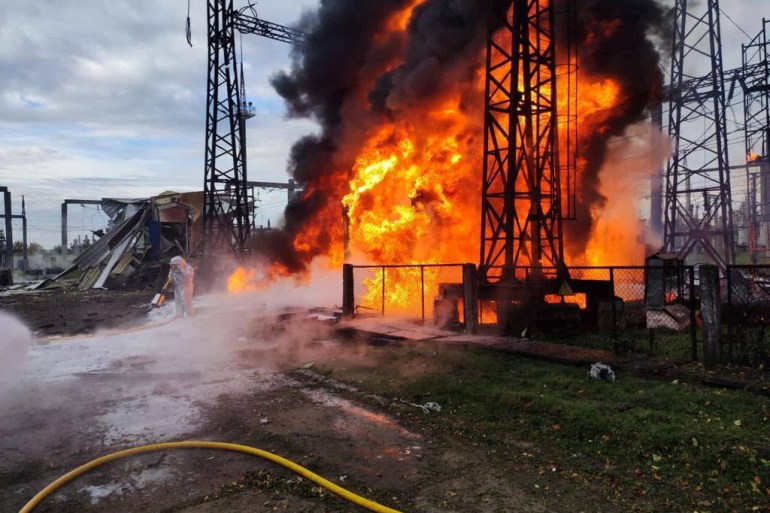KYIV, Ukraine — As they struggle to maintain an electricity grid heavily damaged by Russian missiles, officials in the Ukrainian capital, Kyiv, say they have begun planning for a once unthinkable possibility: a complete blackout that would require the evacuation of the city’s approximately three million remaining residents.
The situation is already so dire, with 40 percent of Ukraine’s energy infrastructure damaged or destroyed, that municipal workers are setting up 1,000 heating shelters that can double as bunkers while engineers try to fix bombed-out power stations without the needed equipment.
To try to keep the grid from failing altogether, Ukraine’s national energy utility said on Saturday that it would continue to impose rolling blackouts in seven regions.

The tremendous strain on Ukraine’s ability to provide power is the result of the widespread bombardment by Russian forces of critical energy infrastructure across the country, a tactic that analysts say President Vladimir V. Putin of Russia has resorted to as his troops have suffered repeated setbacks on the battlefield.
The damage caused by the Russian strikes has heaped new suffering on Ukraine’s civilians and forced officials to reckon with the possibility that further damage could render them unable to provide basic services.

“We understand that if Russia continues such attacks, we may lose our entire electricity system,” Roman Tkachuk, the director of security for the Kyiv municipal government, said in an interview, speaking of the city.
Officials in the capital have been told that they would be likely to have at least 12 hours’ notice that the grid was on the verge of failure.“If there’s no power, there will be no water and no sewage,” says Tkachuk.
As winter approaches, the city is preparing 1,000 heating shelters that can also protect civilians from Russian missiles. Most are inside educational facilities, but the authorities have asked that their precise locations not be reported lest they become easy targets.

(Lack of heating during the coming winter can cause major humanitarian disaster. Portable, capable to be transported in small shipping containers, autonomous power and heating systems, such as the one developed by Ascent Systems Technologies, is a solution which could save thousands, potentially tens of thousands, lives).
When Russia launched its latest barrage of more than 50 cruise missiles
on Monday, most were shot down, Ukrainian officials said. But those that
got through hit power plants and substations, immediately depriving
thousands of people of power.
Ukraine’s national electric utility, UkrEnergo, confirmed on Saturday
the need to continue rolling blackouts, saying they were necessary to
“reduce the load on the networks, ensure sustainable balancing of the
power system and avoid repeated accidents after the power grids were
damaged by Russian missile and drone attacks.”
The cuts would affect Kyiv and its environs, and the regions of Chernihiv, Cherkasy, Kharkiv, Poltava, Sumy and Zhytomyr. Who is next?
The power damages in Ukraine affects not only Ukraine but also EU where significant portion of the Ukrainian power used to be exported. That exacerbates their own problems and already sky-high electricity prices. The power grid can also be hacked, if anyone needs a proof, look no further than hacking of the pipeline in the Eastern US in 2021 and previous multiple hacker attacks on the grid of Baltic republics and Ukraine.
So who is next? Is it Vienna, or maybe it is Paris? It doesn't have to be a war - it can be a strong solar flare, or sever storm.
Isn't it a final wake up call to start re-thinking the entire approach to the centralized energy supplies and move towards decentralized, robust energy system?

Sources: The New York Times and Al-Jazeera
No comments:
Post a Comment